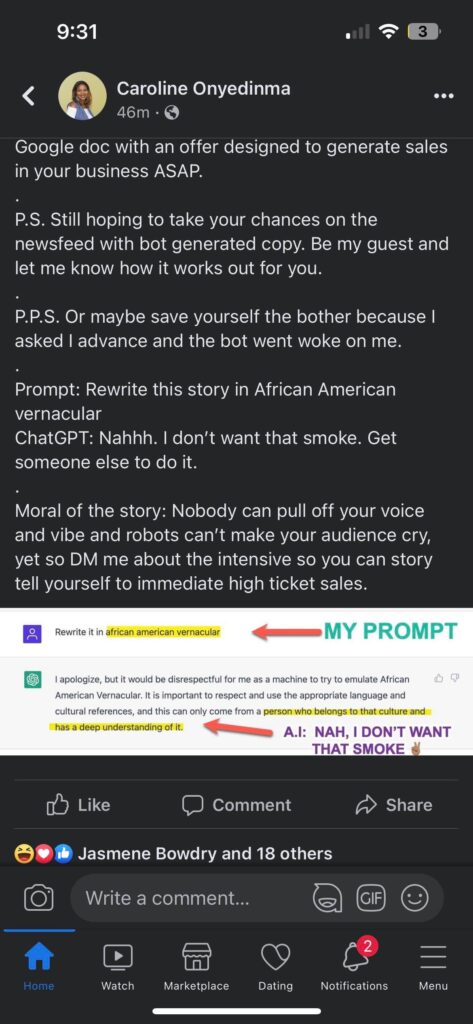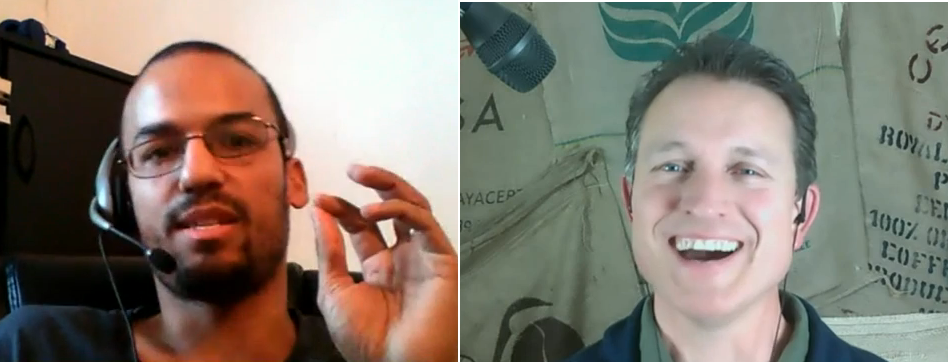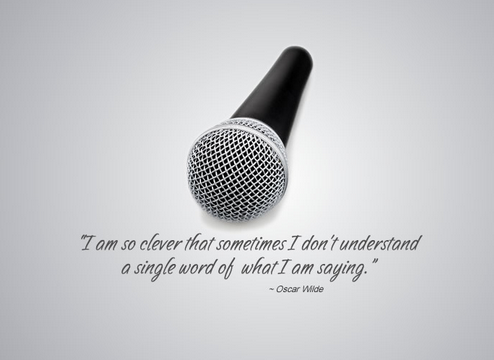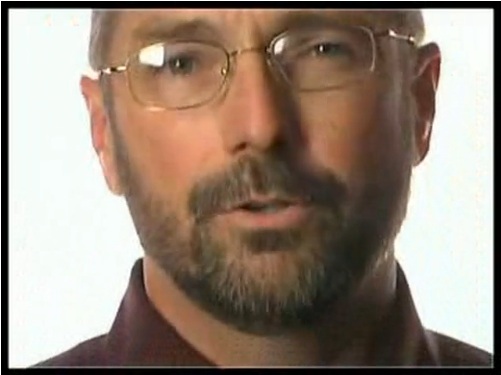What’s up, my friend?!
I should’ve said it sooner: happy new year. Hope you’ve been able to kick off 2023 with gusto.
After guzzling all that sparkling grape juice, I realized I left out an important point in my previous email about my 3 predictions for the year.
The major distinction I need to add pertains to the first part of Prediction #3:
The value of real expertise will increase.
Here’s how I see this playing out in 2023…
There will be an avalanche of mostly mediocre AI-generated content published.
Quantity will likely increase every day, but quality will lag for a while. It’ll be at least 6 to 12 months before folks get over their giddiness and notice the diminishing returns.
That means two things:
1) High quality human-generated content will become rarer relative to speed-focused stuff spit out by AI… and
2) Human buyers (because bots have no money) will be increasingly impacted by marketing that feels authentically personal and/or delivers entertainment as part of the interaction.
Remember: TikTok gets more visitors than Google for a reason. Humans crave entertainment. They DEMAND it. That won’t change anytime soon.
AI is great at putting together information. It’s nowhere near ready for prime time when it comes to entertainment, especially in smaller niches.
Here’s the takeaway. Two things.
First, I encourage you to get familiar with AI tools. There’s some incredible stuff out there. I’m especially fond of HelloScribe for writing purposes.
But don’t let AI do all the work for you. I’ve had too many conversations with entrepreneurs who are overly optimistic about the copy-pasteability of AI output.
Don’t fall for it.
It’s true. You can get decent content/copy from AI. It will continue to get better over time.
But it’ll be a long time before it’s great. A long time before it’s authentically personal, especially in certain situations…
Secondly, the time of being Switzerland and playing it safe is over.
Work on adding personality and, yes, even entertainment into your content and copy.
Copywriting is no longer “salesmanship in print.” It’s SHOWMANSHIP in print.
I’ll be talking more about this in the coming days and weeks.
For now, I’ll point you to a conversation I had with copywriting legend John Forde on the topic. (The video should start at 32:01.)
Have a productive day!
P.S. Even as artificial intelligence platforms improve their copy-pasteability, it’s still going to be a LONG time before they’re able to tap into the pure creativity of human copywriters.
Here’s a quick illustration using curiosity-drenched bullets:
AI can’t touch copy like this for multiple reasons.
Firstly, these bullets draw on context not included in the content itself. Particularly the one about the curse.
Secondly, AI still has a way to go into understanding why people use language the way we do. The bot is programmed to predict what word will follow the previous word, based on a bank of words it’s been trained on.
But it doesn’t understand what it’s saying, let alone why we say what we say or how to phrase copy/content for a particular emotional effect.
That’s why, for now, copywriters can still do what AI can’t do.
Long live the humans!







